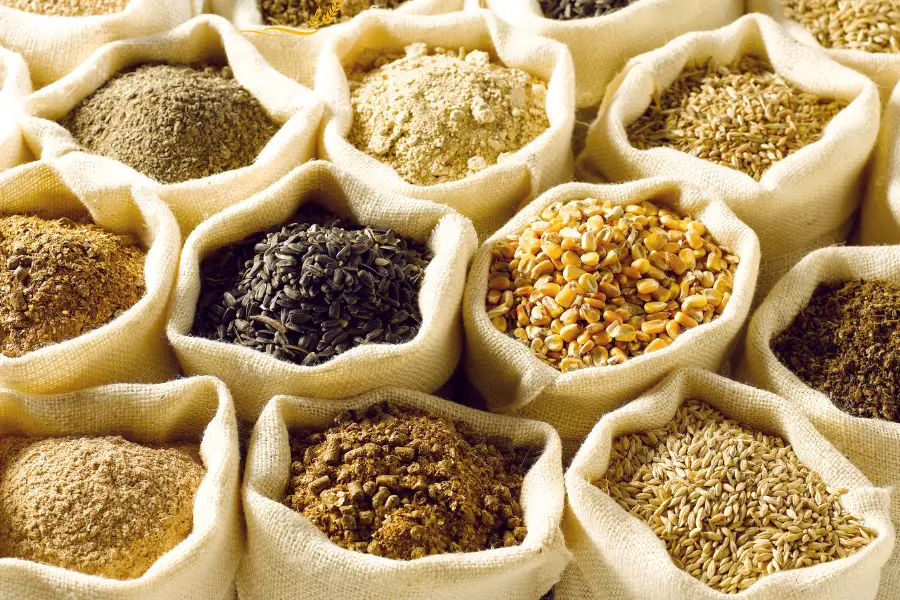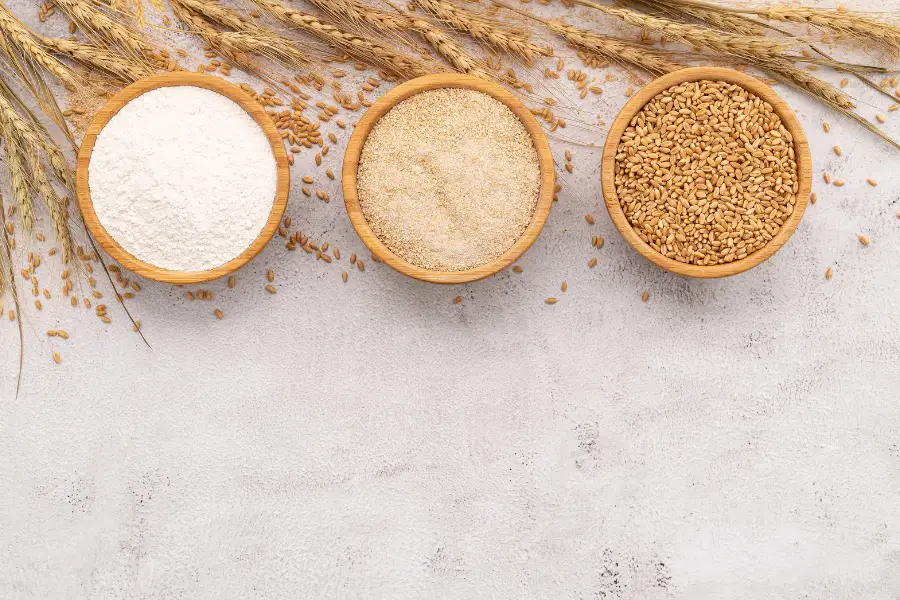Table of Contents
Ancient Grain In a Healthy Cereal nyt,People turn to pursue a healthier lifestyle. These grains, celebrated for their nutritional benefits, are essential to a balanced diet. According to the New York Times (NYT) and other sources, the resurgence of ancient grains, such as quinoa, amaranth, and farro, has provided a healthier alternative to modern, processed cereals. But what exactly makes ancient grains so special? How do they contribute to overall well-being, and why should they be part of your daily diet?
In this comprehensive guide, we’ll explore the importance of ancient grains in a healthy cereal, breaking down their health benefits, nutritional content, and impact on long-term wellness.
What Are Ancient Grains?
Ancient grains refer to a group of grains and seeds that have remained unchanged over the centuries. Unlike modern wheat and corn, which have undergone significant genetic modifications, ancient grains maintain their original nutritional integrity.
Examples of these grains include
Quinoa
Amaranth
Farro
Millet
These grains are rich in essential vitamins and minerals and provide a higher fiber content than many traditional cereals. This makes them an ideal addition to a balanced diet, especially for individuals seeking healthier breakfast options.
Ancient Grain Nutrition
| Ancient Grain | Protein (g per 100g) | Fiber (g per 100g | Key Minerals |
| Quinoa | 14.1 | 7.0 | Magnesium, Iron |
| Amaranth | 13.6 | 6.7 | Calcium, Magnesium |
| Farro | 14.2 | 5.5 | Zinc, Iron |
| Millet | 11.0 | 8.5 | Phosphorus, Magnesium |
The Nutritional Power of Ancient Grains
The nutritional value of ancient grains far surpasses that of modern processed grains. In particular, they are packed with fiber, protein, and essential minerals that support overall health. Here’s a deeper look at the nutrients found in these grains:
Fiber: Promotes digestive health, helps regulate cholesterol, and aids in weight management.
Protein: Builds and repairs muscle tissue, making ancient grains a valuable protein source, especially for vegetarians and vegans.
Essential Minerals: Ancient grains are rich in iron, magnesium, and zinc, all of which play vital roles in various bodily functions.
Incorporating ancient grains in a healthy cereal supports a nutrient-rich diet and offers long-lasting energy throughout the day.
How Ancient Grains Support Digestive Health
Digestive health is a crucial aspect of overall wellness, and ancient grains significantly promote it. Their high fiber content helps regulate bowel movements, reduces the risk of constipation, and promotes a healthy gut microbiome.
Why Fiber Matters
Improves digestion
Fiber adds bulk to the stool, facilitating easier passage through the digestive tract.
Supports gut health
High-fiber foods, like ancient grains, feed beneficial bacteria in the gut, which are essential for a healthy immune system.
Reduces risk of colorectal cancer
Diets rich in whole grains and fiber have been shown to lower the risk of colorectal cancer.
Including ancient grains in a healthy cereal is an easy way to boost fiber intake and improve digestion, especially for individuals prone to digestive issues like IBS (Irritable Bowel Syndrome).
Blood Sugar Control and Ancient Grains
One of the most significant advantages of incorporating ancient grains into your diet is their ability to help regulate blood sugar levels. Unlike refined cereals, which cause rapid spikes in blood glucose, ancient grains have a low glycemic index. This means they release sugar into the bloodstream more slowly, preventing sudden spikes and crashes in energy levels.
Glycemic Index (GI) of Ancient Grains
Quinoa: 53 (low)
Amaranth: 45 (low)
Millet: 54 (low)
Benefits for Diabetics:
Stabilizes blood sugar
Ancient grains help manage blood glucose levels, making them ideal for individuals with diabetes or those at risk of developing the condition.
Promotes satiety
Ancient grains’ high fiber and protein content keeps you fuller for longer, reducing the temptation to snack on high-sugar foods.
Heart Health and Ancient Grain In A Healthy Cereal NYT
Numerous studies have highlighted the role of whole grains in promoting heart health, and ancient grains are no exception. Their high levels of fiber, antioxidants, and omega-3 fatty acids contribute to improved cardiovascular health.
Reduces cholesterol
Ancient grains, like oats and barley, contain beta-glucan, a soluble fiber that helps lower LDL (bad) cholesterol.
Lowers blood pressure
The magnesium content in ancient grains has been linked to reduced blood pressure, an essential factor in preventing heart disease.
Prevents inflammation
Antioxidants found in grains like quinoa and farro help combat chronic inflammation, a risk factor for heart disease.

Ancient Grains
Finding suitable cereal options can be challenging for those with gluten sensitivity or celiac disease. Fortunately, many ancient grains, including quinoa, amaranth, and millet, are naturally gluten-free. These grains provide a safe and nutritious alternative to traditional wheat-based cereals.
Benefits of Gluten-Free Diets
Nutrient-dense
Ancient grains are packed with the nutrients many gluten-free processed foods lack, such as fiber, protein, and essential vitamins.
Easy to digest
Unlike some gluten-free substitutes, ancient grains are easier on the digestive system and less likely to cause bloating or discomfort.
Incorporating gluten-free ancient grains into a healthy cereal ensures you don’t miss out on essential nutrients while avoiding gluten.
Tips for Incorporating Ancient Grains into Your Diet
Introducing ancient grains into your daily meals can be simple and delicious. Here are some practical tips:
Start with breakfast
Enjoy the delicious nutty flavor of ancient grains like quinoa or amaranth as part of your morning cereal. Pair them with fresh fruits, nuts, and seeds for added nutrition. Replace white rice or pasta with ancient grains like farro or spelled for lunch or dinner. These simple swaps can make a significant difference in your diet and health.Make grain salads: Quinoa and millet, with their unique textures and nutty flavors, make excellent salad bases. These grains offer health benefits and add a delicious twist to your meals. Get creative with your meal planning and enjoy the unique taste of ancient grains in your healthy cereal and other meals.
Ancient Grains and Weight Management
Due to their high fiber and protein content, ancient grains are excellent for promoting satiety and supporting healthy weight management. Studies have shown that diets rich in whole grains, including ancient grains, are linked to lower body weight and reduced abdominal fat.
Promotes fullness: The fiber in ancient grains slows digestion, keeping you satisfied for longer.
Boosts metabolism: The protein in these grains helps build muscle and burn fat, aiding weight loss.
Conclusion
As noted by sources like the New York Times, incorporating ancient grain in a healthy cereal provides numerous health benefits, from improved digestion and heart health to stable blood sugar levels and weight management. Whether you’re seeking a gluten-free option, boosting your fiber intake, or simply looking for a more nutritious alternative to processed grains, ancient grains are the perfect choice.
Are you ready to try ancient grains in your diet? Start by incorporating them into your breakfast routine, and see the difference they make in your health. For more tips on nutritious eating, explore our other blog posts.
FAQs
What are ancient grains?
Ancient grains such as quinoa, amaranth, and farro have remained unchanged for thousands of years.
Why are ancient grains healthier than modern grains?
Ancient grains are more nutrient-dense, offering higher fiber, protein, and essential minerals than refined grains.
Can I eat ancient grains if I’m gluten-free?
Many ancient grains, like quinoa and amaranth, are naturally gluten-free.
How do ancient grains help with weight management?
Their high fiber and protein content promote satiety and boost metabolism, aiding in weight loss.
Are ancient grains good for heart health?
Ancient grains are rich in fiber and antioxidants that help lower cholesterol and reduce inflammation, improving heart health.

